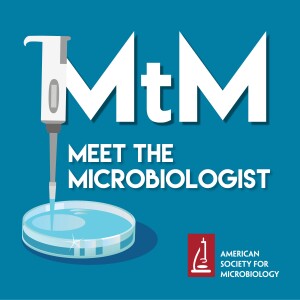
104: Burkholderia pseudomallei and the Neglected Tropical Disease Melioidosis with Direk Limmathurotsakul
 2019-03-21
2019-03-21
Burkholderia pseudomallei is an endemic soil-dwelling bacterium in southeast Asia, where it causes melioidosis. Direk Limmathurotsakul discusses his work to improve the official reporting numbers and how
Julie’s Biggest Takeaways:
Melioidosis can present in a number of ways, such as sepsis, pneumonia, or abscesses. Because the symptoms are not specific, diagnosis requires isolation of the Burkholderia pseudomallei bacterium. Risk factors for disease include diabetes and exposure to the soil and water in which the bacterium lives.
In 2012, only 4 people were officially reported to have died of melioidosis in Thailand, but microbiological records suggest the real number was closer to 696. Scientists like Direk worked with the government to improve reporting requirements and the numbers now reflect a more accurate assessment of the disease burden. More accurate official reporting can lead to more public health campaigns, resources, and support for both scientists and patients.
Social media campaigns and a YouTube competition help to raise local awareness of melioidosis. The YouTube competition engages the community by allowing them to enter videos in their own dialect, which then inform others about how to minimize risk factors for melioidosis.
The AMR Dictionary gives simple definitions to jargon surrounding the problem of antimicrobial resistance. The definitions are translated into multiple languages in ways that make sense with colloquialisms. For example, in Thai, many people refer to antibiotics as antiseptics or anti-inflammatory drugs, and the dictionary takes local use into consideration in its definitions.
Links for this Episode:
MTM Listener Survey
Limmathurotsakul website at MORU Tropical Health Network
Melioidosis.info
Melioidosis: the Most Neglected Tropical Disease
Antibiotic Footprint
AMR Dictionary
More Episodes
 2023-05-05
2023-05-05
 2023-02-07
2023-02-07
 2022-12-22
2022-12-22
 2022-11-19
2022-11-19
 2022-10-28
2022-10-28
Create your
podcast in
minutes
- Full-featured podcast site
- Unlimited storage and bandwidth
- Comprehensive podcast stats
- Distribute to Apple Podcasts, Spotify, and more
- Make money with your podcast
It is Free
- Privacy Policy
- Cookie Policy
- Terms of Use
- Consent Preferences
- Copyright © 2015-2024 Podbean.com




